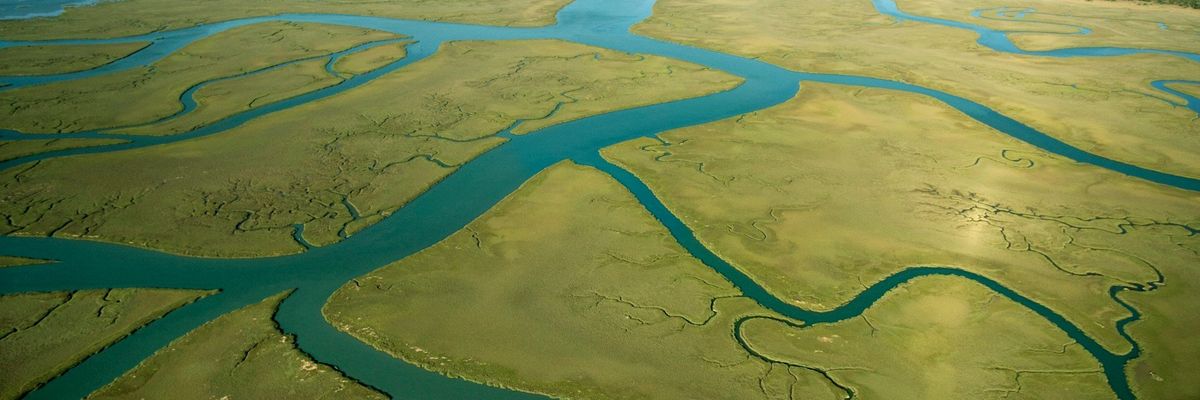denial
Wildfire devastation hits Jasper, Alberta
A raging wildfire forced firefighters to retreat, leaving Jasper residents uncertain about the fate of their homes.
In short:
- The wildfire moved five kilometers in under 30 minutes, with flames reaching 100 meters high.
- Jasper's mayor, evacuated with residents, described the overwhelming sense of helplessness as they awaited news from afar.
- Alberta's provincial response was hampered by jurisdictional issues with Parks Canada, delaying critical support measures.
Key quote:
"Like all residents, I feel essentially devastated, shattered and absolutely helpless in the face of nature, which is just so powerful."
— Richard Ireland, Mayor of Jasper
Why this matters:
As wildfires become more frequent due to climate change, communities face increasing threats and challenges. Improved wildfire management and climate action are crucial to mitigate future disasters.
Dutch and American climate deniers team up as Europe leans right
A climate denial conference in the Netherlands shows growing ties between Dutch and American groups, reflecting a broader rightward shift in Europe.
Nina Tea Zibetti, Alexander Beunder, Merel de Buck and Jilles Mast report for DeSmog.
In short:
- Clintel's fifth anniversary conference showcased speakers like Gregory Wrightstone and Willie Soon, emphasizing CO2's purported benefits and mocking renewable energy.
- The event underscored growing connections between Dutch climate deniers and U.S.-based organizations like the CO2 Coalition, which has financial backing from major American oil interests.
- The rise of far-right political parties in the Netherlands, such as PVV and BBB, aligns with Clintel's anti-regulation stance, giving climate denial more media attention and political influence.
Key quote:
"I embrace that high carbon lifestyle […] CO2 is showing huge, huge benefits and so we should celebrate it."
— Gregory Wrightstone, climate science denier and executive director of CO2 Coalition
Why this matters:
The strengthening ties between Dutch and American climate deniers could undermine international climate efforts, promoting policies that ignore or downplay the dangers of climate change. This trend reflects a broader political shift that could have significant environmental and policy implications globally.
Many congressional Republicans still deny climate science
An analysis reveals that 123 Republican lawmakers in Congress deny human-caused climate change despite declining numbers from previous years.
In short:
- The Center for American Progress found 123 House and Senate Republicans deny the scientific consensus on climate change.
- This group includes prominent leaders like House Speaker Mike Johnson and Majority Leader Steve Scalise.
- Despite the reduction in numbers, these members have collectively received $52 million from the fossil fuel industry.
Key quote:
“It's also concerning because it’s so obvious what the facts are, and to watch so many members of Congress pretend that the science is not settled, it just reveals a willingness to disregard truth.”
— Trevor Higgins, senior vice president for energy and environment, Center for American Progress
Why this matters:
Lawmakers denying climate science hinder efforts to address climate change effectively. Their significant influence and funding from fossil fuel interests could stall crucial policy actions needed to mitigate environmental impacts.
At least 30 Reform UK candidates doubt climate change
At least 30 Reform UK candidates have questioned human-caused global warming on social media, according to a Guardian analysis.
In short:
- Many candidates label climate change warnings as a "hoax" or "scam," promoting conspiracy theories involving "global elites" and "the Illuminati."
- Reform UK's only MP, Lee Anderson and the party chair, Richard Tice, also express skepticism about the impact of decarbonization on global heating.
- The party's election contract pledges to eliminate the UK's net-zero commitments, reflecting a broader denial of human-caused climate disruption.
Key quote:
“This is a scientifically illiterate approach. People across the country are suffering from climate change and these candidates are not suitable to represent them.”
— Bob Ward, the policy and communications director at the Grantham Research Institute on Climate Change and the Environment at the London School of Economics.
Why this matters:
Reform UK's climate change denial could hinder effective climate action in the next parliament. Their stance reflects a growing trend of skepticism on the political right, potentially undermining efforts to address the climate crisis.
Curtis' win in conservative Utah could influence GOP climate stance
Utah Republican John Curtis’ U.S. Senate primary victory signals potential shifts in GOP climate policies.
In short:
- U.S. Rep. John Curtis, known for his climate advocacy, won his primary, positioning himself for a U.S. Senate seat.
- Curtis founded the Conservative Climate Caucus to promote Republican engagement in climate science and bipartisan solutions.
- His legislative future may include the "PROVE IT Act," focused on studying carbon intensity of U.S. products.
Key quote:
“Does it verify or affirm that you can have a more thoughtful or nuanced position on climate issues and energy issues and still get elected statewide in a conservative state? Yes.”
— U.S. Rep. Garret Graves (R-La), ranking member of the Select Committee on the Climate Crisis
Why this matters:
Curtis' win could lead to greater bipartisan cooperation on climate issues in a traditionally conservative state. His efforts to shift Republican perspectives on climate policy may impact national discussions and legislative actions.
Kenyan farmer leads climate change denial movement
Kenyan farmer Jusper Machogu has gained notoriety online for his stance against man-made climate change, attracting donations and support from Western fossil fuel advocates.
In short:
- Jusper Machogu, a 29-year-old Kenyan farmer, has gained a large online following by promoting climate change denial and fossil fuel use in Africa.
- Despite receiving donations from Western fossil fuel interests, Machogu claims his views are independently formed.
- Climate experts warn that Machogu's misinformation could undermine climate action in Africa, a continent highly vulnerable to climate impacts.
Key quote:
“Because we still have low climate literacy levels in Africa and in Kenya, and if that conspiracy theory spreads to communities or to people, it could just really undermine climate action.”
— Dr. Joyce Kimutai, climate scientist
Why this matters:
Africa is one of the most vulnerable continents to climate change. Spreading misinformation about climate science can hinder essential climate action, worsening the continent's susceptibility to severe weather events.
UK: Nigel Farage to run for MP, pledging to oppose climate policies
Nigel Farage, leader of Reform UK, has announced his candidacy for MP, emphasizing his opposition to climate action and net zero policies.
In short:
- Nigel Farage is standing for MP and will lead Reform UK, succeeding Richard Tice.
- Farage has consistently opposed climate action, calling for a referendum on the UK's net zero emissions target.
- Reform UK's anti-climate policies reflect Farage's views, including skepticism of climate science and support for fossil fuels.
Key quote:
“I think wind energy is the biggest collective economic insanity I’ve seen in my entire life. I’ve never seen anything more stupid, more illogical, or more irrational.”
— Nigel Farage, leader of Reform UK
Why this matters:
Farage's candidacy and leadership of Reform UK could amplify anti-climate policies in Parliament, challenging the UK's climate commitments. This stance contrasts with public support for renewable energy and climate action, potentially influencing future environmental policies.









